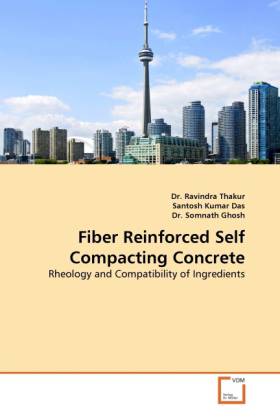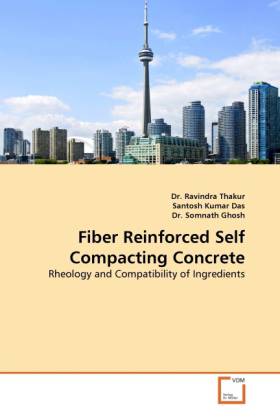
Bedankt voor het vertrouwen het afgelopen jaar! Om jou te bedanken bieden we GRATIS verzending (in België) aan op alles gedurende de hele maand januari.
- Afhalen na 1 uur in een winkel met voorraad
- In januari gratis thuislevering in België
- Ruim aanbod met 7 miljoen producten
Bedankt voor het vertrouwen het afgelopen jaar! Om jou te bedanken bieden we GRATIS verzending (in België) aan op alles gedurende de hele maand januari.
- Afhalen na 1 uur in een winkel met voorraad
- In januari gratis thuislevering in België
- Ruim aanbod met 7 miljoen producten
Zoeken
Fiber Reinforced Self Compacting Concrete
Rheology and Compatibility of Ingredients
Ravindra Thakur, Santosh Kumar Das, Somnath Ghosh
Paperback | Engels
€ 71,95
+ 143 punten
Omschrijving
Self-compacting concrete (SCC) is a new concrete technology developed during last two decades and it has become very popular in the construction industry. Filling ability, Passing ability and Resistance against segregation & bleeding, are the main properties of Self-compacting concrete. The main problem in designing of SCC is the selection of appropriate ingredients. All super plasticizers and viscosity modifying admixtures (VMA) are not compatible with any kind of cement. An experimental investigation has been undertaken to produce Self-compacting mortar and Self-compacting concrete to understand cement-plasticizers or admixture compatibility problem. Further, the harden properties of SCC was improved by addition of polypropylene fibers. The common problem associated with the use of fiber in concrete is the reduction in workability. However, the flow properties for SCC can be achieved in presence of fiber using new generation plasticizers and additives.The present research also describes the manufacturing process and rheological aspects of newly developed fiber reinforced self compacting mortar
Specificaties
Betrokkenen
- Auteur(s):
- Uitgeverij:
Inhoud
- Aantal bladzijden:
- 76
- Taal:
- Engels
Eigenschappen
- Productcode (EAN):
- 9783639339987
- Verschijningsdatum:
- 6/04/2011
- Uitvoering:
- Paperback
- Formaat:
- Trade paperback (VS)
- Afmetingen:
- 152 mm x 229 mm
- Gewicht:
- 122 g

Alleen bij Standaard Boekhandel
+ 143 punten op je klantenkaart van Standaard Boekhandel
Beoordelingen
We publiceren alleen reviews die voldoen aan de voorwaarden voor reviews. Bekijk onze voorwaarden voor reviews.









